You can use this built-in function
import itertools
data = ['a', 'b', 'c', 'd', 'e', 'f']
#in case the number of items is odd
len(data) % 2 != 0 and data.append(None)
number_of_groups = int(len(data) / 2)
check = lambda x, y: not list(set(x) & set(y))
test = lambda grps : all([check(x[0], x[1]) for x in itertools.combinations(grps, 2)])
pairs = [list(x) for x in itertools.combinations(['a', 'b', 'c', 'd', 'e', 'f'], 2)]
[list(x) for x in itertools.combinations(pairs, number_of_groups) if test(x)]
The result is [[['a', 'b'], ['c', 'd'], ['e', 'f']], [['a', 'b'], ['c', 'e'], ['d', 'f']], [['a', 'b'], ['c', 'f'], ['d', 'e']], [['a', 'c'], ['b', 'd'], ['e', 'f']], [['a', 'c'], ['b', 'e'], ['d', 'f']], [['a', 'c'], ['b', 'f'], ['d', 'e']], [['a', 'd'], ['b', 'c'], ['e', 'f']], [['a', 'd'], ['b', 'e'], ['c', 'f']], [['a', 'd'], ['b', 'f'], ['c', 'e']], [['a', 'e'], ['b', 'c'], ['d', 'f']], [['a', 'e'], ['b', 'd'], ['c', 'f']], [['a', 'e'], ['b', 'f'], ['c', 'd']], [['a', 'f'], ['b', 'c'], ['d', 'e']], [['a', 'f'], ['b', 'd'], ['c', 'e']], [['a', 'f'], ['b', 'e'], ['c', 'd']]]
